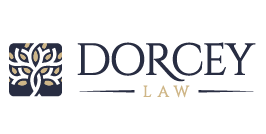Probate is a court-supervised process that plays a crucial role in settling the affairs of a deceased person. The primary steps in probate include identifying and gathering the decedent's assets, paying outstanding debts, and distributing the remaining property to the designated beneficiaries. This court-administered procedure helps ensure a fair and systematic transfer of assets, providing a legal framework for resolving an individual's estate after their passing.
Assets commonly go through probate and include property owned solely by the decedent, such as real estate or bank accounts. Recognizing which assets can sidestep probate is crucial for several reasons. Firstly, it can substantially reduce the administrative responsibilities associated with the probate process. This, in turn, contributes to a more streamlined and efficient estate settlement.
Secondly, the financial implications are noteworthy. Avoiding probate can lead to lower costs associated with administering the estate. Probate proceedings often involve fees and expenses, and by strategically managing which assets enter probate, individuals can potentially minimize these financial burdens. Additionally, avoiding probate can be instrumental in sidestepping the time delays that are often part of the probate process. This timely resolution can be especially significant in providing beneficiaries quicker access to their inheritances.
If you need estate planning assistance, please get in touch with Dorcey Law Firm at (239) 309-2870. We provide legal counsel in Fort Myers.
Assets Jointly Owned
Joint ownership of assets holds a notable advantage in probate avoidance, streamlining the transfer of property after an individual's passing. Two fundamental forms of joint ownership include "tenants by the entirety" and "rights of survivorship."
Tenants by Entirety
In this arrangement between spouses, each owns an equal interest in the property. The unique feature here is that the property is considered a single entity owned by the marital unit. Significantly, when one spouse passes away, the property automatically transfers to the surviving spouse without going through probate.
The primary advantage of tenants by entirety lies in the automatic property transfer to the surviving spouse without probate involvement. This expedites the transfer and ensures the seamless continuation of property ownership within the family unit.
Rights of Survivorship
This form of joint ownership can involve spouses or individuals unrelated by marriage. Each tenant has a distinct interest in the asset, and crucially, the arrangement includes a provision that stipulates when one tenant passes away, their portion of the interest seamlessly passes to the surviving tenant. This process occurs outside of probate.
Like tenants by the entirety, the primary advantage here is the avoidance of probate. Transferring the deceased tenant's interest to the surviving tenant is swift and straightforward, saving time and potentially reducing administrative complexities.
Assets with Designated Beneficiaries
One effective strategy for probate avoidance involves assets with designated beneficiaries. Understanding the types of assets and the impact of beneficiary designations on the probate process is crucial for efficient estate planning.
Types of assets that can have designated beneficiaries include the following:
- Life insurance: Life insurance policies often allow policyholders to designate beneficiaries who will receive the death benefit upon the policyholder's passing.
- Retirement accounts: IRAs, 401(k)s, and other retirement accounts permit individuals to specify beneficiaries who will inherit the funds.
- Bank accounts: Certain bank accounts, particularly those associated with payable-on-death (POD) or transfer-on-death (TOD) designations, enable the account holder to name beneficiaries.
- Investment accounts: Some investment accounts also provide the option to designate beneficiaries, allowing for a straightforward transfer of assets.
When an account or policy has named beneficiaries, the asset transfer to those beneficiaries can occur directly and efficiently without court supervision.
Importance of Keeping Beneficiary Designation Updated
Regularly reviewing and updating beneficiary designations to align with current wishes and life circumstances is crucial. Life events such as marriage, divorce, the birth of children, or the passing of a beneficiary may necessitate adjustments to beneficiary designations. By ensuring that designations are current, individuals can be confident that their assets will pass to the intended beneficiaries, providing control and certainty in estate planning.
Assets Held in a Trust
Trusts are pivotal in estate planning, offering a comprehensive and efficient method for managing and distributing assets. Understanding the fundamental aspects, types of assets suitable for inclusion, and the benefits of using a trust for probate avoidance is essential for individuals seeking a streamlined and controlled approach to estate management.
A trust is a legal arrangement where assets are transferred to a trust account during the settlor's lifetime (the person establishing the trust). Upon the settlor's death, the trustee manages and distributes the trust assets according to the terms outlined in the trust document. Notably, this process occurs outside of court supervision, providing privacy and flexibility not always afforded by probate.
Types of assets suitable for inclusion in a trust include:
- Bank accounts
- Real estate
- Personal property
- Investments
Avoiding probate makes the distribution process more efficient, often saving time and costs. Moreover, trusts provide a valuable tool for individuals seeking greater control over how their assets are managed and distributed.
Securing Your Legacy with Strategic Estate Planning
As you consider the intricacies of your estate, it's paramount to take proactive steps in managing your assets. By understanding the nuances of probate and leveraging strategies like joint ownership, designated beneficiaries, and trusts, you gain a valuable advantage in ensuring the smooth transition of your legacy to your loved ones.
If you're seeking professional guidance in estate planning, Dorcey Law Firm in Fort Myers is here to assist you. Contact us today at (239) 309-2870 or online.


